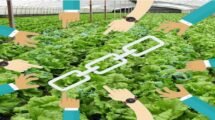The Gurgaon-based Hi-Tech International, a plastics and packaging technology sourcing provider, has developed a plant-based bio-compostable polymer. The biopolymer, which is derived from corn starch, can be used to replace single and multiple-use plastic products.
‘Corn starch is the main component of the biodegradable polymer. It is completely compostable and can be used in place of plastic bottles, straws, cups, disposable cutlery, and polybags,’ said Mukul Sareen, Director of Business Development at Hi-Tech International.
Biodegradable product
Following tests, the Institute of Petrochemicals Technology (formerly Central Institute of Petrochemicals Technology Engineering and Technology) approved the bio-compostable polymer known as Dr. Bio.
“Our product, India’s first, was only approved after it was discovered to be compostable. “Ours is the only biopolymer film that has been approved by the Bureau of Indian Standards (BIS),” said a Hi-Tech International official.
Also Read: Maize acreage increased by 41% in Karnataka in current Kharif season
The company, which relocated its headquarters from Mumbai to Haryana a few years ago, has made significant progress with its product.
After tests, the Institute of Petrochemicals Technology (formerly Central Institute of Petrochemicals Technology Engineering and Technology) approved the bio-compostable polymer known as Dr. Bio. ‘Our product, India’s first, was approved only after it was discovered to be compostable. We are the only biopolymer film that has been approved by the Bureau of Indian Standards (BIS),’ said a Hi-Tech International official.
The company, which relocated its headquarters from Mumbai to Haryana city a few years ago, has made significant progress with its product.
‘We received a licence from the Central Pollution Control Board a few days ago to begin producing the bio-compostable polymer, and we have now begun pitching Dr Bio to various customers,’ Sareen explained.
Hi-Tech began producing biopolymers in 2018 at its plant in Ludhiana, Punjab.
Granules of polymer
Corn starch is converted into granules to produce the biopolymer. ‘We buy starch from mills and polymerize it through a blending process. This allows us to obtain polymer granules in the same way that some petrochemical companies produce plastic granules,’ Sareen explained.
The Gurgaon-based company, founded in 1985, manufactures bottles, cups, trays, polybags, and other materials from these granules. ‘Corn starch accounts for 60-70 percent of our product. We also use biomass to manufacture our products,” he explained.
The biopolymer product receiving the necessary clearances from the authorities is significant, given that India alone produces 9.46 million tonnes of plastic waste each year. At least 40% of this is still uncollected. The issue with this waste is that 43% of it is used for packaging, and the majority of it is for single-use.
At least 60% of this ends up in landfills or in open environments. A significant issue with plastics is that at least 40 kg of every 100 kg is not reused.
Also Read: Developed countries say India will not be able to find a permanent solution to the MSP issue
More durable than plastics
Though biopolymer production costs more, this can be offset by producing materials with lower micron levels than traditional plastic products. ‘Biopolymers are 2.5 times more expensive than plastic products, but one advantage is that you can’t make a plastic bag smaller than 50 microns. On the other hand, we can make a 20-micron biopolymer bag,’ he said.
Despite having a lower micron level, these biopolymers are stronger than plastic bags. ‘A 50-micron conventional polybag made of plastic can normally hold up to two kilogrammes of product. “Our biopolymer bags can hold up to five kilogrammes of product,’ Sareen explained.
Hi-Tech International’s optimism for a positive response to its product stems from the new law that the Centre intends to enact in order to raise the micron level to 120. ‘This will increase the competitiveness of our product against plastic products,’ he said.
Also Read: China Farmers abandoning other crops in favour of maize due to high profit margins
Dr Bio has been commercially launched, and some customers have accepted it. ‘We also export biopolymers to Europe, the United States, South America, and South Africa. We’ve also begun pitching our product to e-commerce companies, and so far, we’ve had good traction,’ he said.
Hi-Tech, a privately held company, is now attempting to produce similar biopolymers from potato and tapioca, both of which are starch materials.


















Add Comment